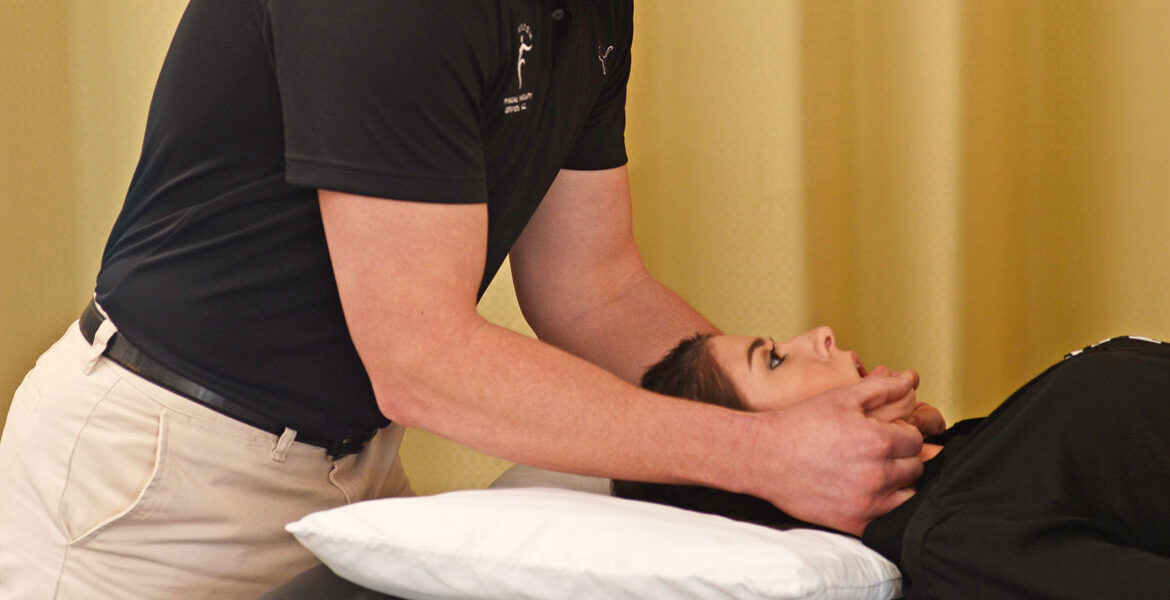I have had many people, not just patients, but friends and family, who have asked me the question, “Why does my jaw hurt?” Needless to say, it can be a difficult question to answer without really investigating, getting a history, and doing a thorough examination.
The Neck’s Role in Jaw Pain
Before diving into the specifics of the jaw, it is important to stress the relationship of the neck, specifically the upper cervical spine, to symptoms of the head, face, and jaw. The upper cervical segments of our spine, C1-C3, have nerve roots that can cause referred pain to the face/jaw region. Thus, prior neck injuries from car accidents or falls, or even poor posture, can result in the upper neck producing pain into the face. Poor posture can also affect how our teeth come together, or our bite. A forward head position, which can be common for those people who have a desk job or who work on a computer most of the day, can cause certain muscles of the neck and face to pull the jaw bone, or mandible, backward. This can change how the teeth come into contact while we eat and chew, and can cause pain in the joints or muscles of the jaw and face.
Temporomandibular Disorder (TMD)
If we have been able to rule out neck involvement, then we need to examine the jaw to determine the exact cause(s) of the temporomandibular disorder (TMD). Typically it can be due to one of the following four diagnoses: a joint dysfunction/arthralgia, a muscle dysfunction or pain, a disc dysfunction, or a combination of these dysfunctions. While this may seem simplistic, it does require a thorough evaluation from a therapist who is trained and certified to diagnose and treat these issues. While there are times when it is a simple joint inflammation or pain, more often than not it is a combination of a neck problem in conjunction with a jaw dysfunction.
Posture
Treatment plans are developed based on the findings of the examination, but nearly every patient needs to work on improving posture and cervical, scapular, and postural strength. A workstation ergonomic assessment can also be very beneficial to help manage symptoms and prevent future problems from developing. Some employers have onsite assistance with these assessments, but in the event that they are not available, Freedom Physical Therapy’s team has ergonomic specialists who can help provide you with appropriate workstation changes and suggestions.
Mike Verplancke, DPT, CSCS, CMTPT, CFC
Certified Craniofacial and TMD Therapist

